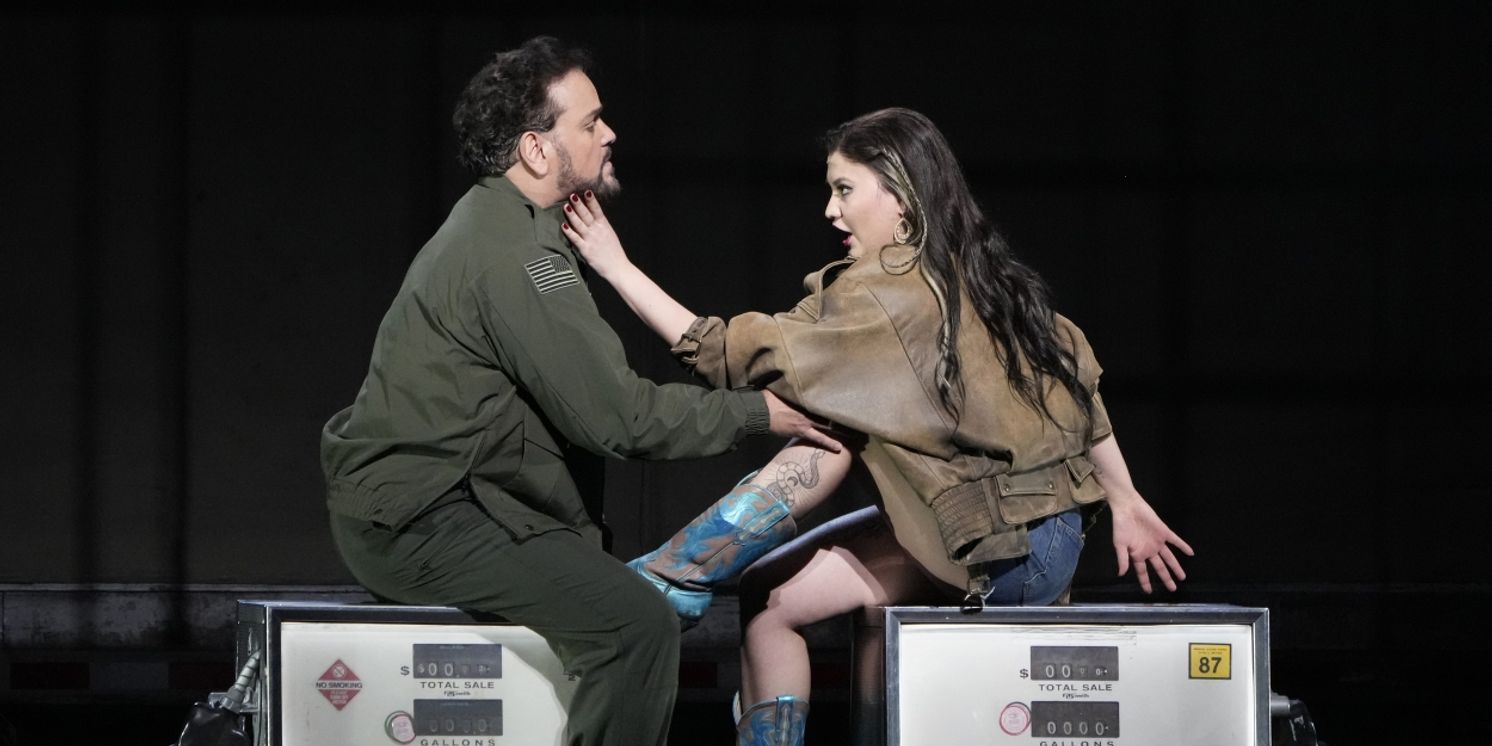Review: When Akhmetshina's CARMEN Is On Stage at The Met, Don't Fence Her In
Star Sizzles but Met’s New Production from Cracknell Doesn’t

Sometimes you hear a singer who embodies a role so completely that it’s hard to imagine her in anything else. That’s how I felt about the wonderful mezzo Aigul Akhmetshina, who’s singing the title role in the Met’s new production of Bizet’s CARMEN, which I saw at its second performance.
Her portrayal was as full-bodied as her voice and she sizzled, filling up the stage as much as one can imagine, whether singing the Habanera ("L'amour est un oiseau rebelle") or the seguidilla that sings of her passion. It’s little surprise that she’s considered the Carmen of the moment, having appeared in seven other productions (with two to come), although she has also done many other things, including Elisabetta in MARIA STUARDA, Charlotte in WERTHER and Rosina in BARBIERE, among others.
It was also a fine night for conductor Daniele Rustioni and the Met orchestra, who made the score sound as good as it is, as did the Met chorus. Otherwise, we were given a rather uninspiring concept from British director Carrie Cracknell, set in a “contemporary American industrial town,” that worked well enough, I guess, but nothing more. She filled the stage with trucks, a sportscar and assorted other paraphernalia, had the chorus do “the wave” at the rodeo, but nothing one would call “a good idea.”
Nor was there anything that makes her setting justifiable or backs up the rest of the cast: She didn’t give the singers much help in filling out their characters, which is not something that one expects from a heralded debut, and her partners in crime (set designer Michael Levine with lighting by Guy Hoare and projections by rocafilm/Roland Horvath, and costumes by Tom Scutt) rolled over and played dead.
The night’s Don Jose—who falls for Carmen and eventually kills her—was supposed to be tenor Piotr Beczala but he was still out sick, having also missed the opening, and Rafael Davila stepped in again. I’d seen him seven years ago when he was standby for Marcelo Alvarez in the previous production and he sang reliably (if not particularly nuanced) with his big voice that took a long time warming up.
Worse, he and Carmen didn’t exactly fire up the stage; there seems to have been a lot of shortcuts in their affair and not much heat—maybe about 15 minutes of steam doesn’t really seem enough to turn him into a wild man. Jose's great love song, "La fleur que tu m'avais jetée (aka, “The Flower Song”), was in the low-impact mode--not great for setting up the torrid nature of his feelings and what’s to come.
The same night I first heard Davila, in 2017, bass-baritone Kyle Ketelsen was also the Escamillo—Bizet’s toreador, who’s now a rodeo star. He has one of the best moments in the score ("The Toreador Song," "Votre toast...je peux vous le rendre," which wasn’t even translated in the titles) it’s one of those times when the singer has to arrive (here, in a red sportscar) and stop the show without giving him the opportunity for his voice to open up. Cracknell could have given him a little help in fleshing out the role , too, so there was more to it than strutting.
The same was true of the Micaela of soprano Angel Blue, who arrived on stage with her rolling suitcase, with a message from Jose’s mother. Once upon a time, this role was more ingenue-like; in today’s version of this hometown girl who arrives to try to convince Jose to remember that he was once a good guy, she sounded more like an Aida. The director didn’t seem to have bothered giving her a hook to make the role seem interesting, though I liked Blue’s "Je dis que rien ne m'épouvante," as she prayed for courage.
Proving there are no small parts, only good singers waiting to show what they can do, mezzo Briana Hunter and soprano Sydney Mancasola did very well as Carmen’s pals, Mercedes and Frasquita. In particular, Mancasola stood out; I recall her when she was one of the winners of the Met’s Council Auditions about a decade ago and she was a standout then as now.
According to the program, director Cracknell reinvigorated “the classic story with a staging that moves the action to the modern day and finds at the heart of the drama issues that could not be more relevant today: gendered violence, abusive labor structures, and the desire to break through societal boundaries.” Hmm. From my standpoint, go to this CARMEN to hear a star performance from Akhmetshina—worth traveling for—and wonder how many years till they replace the production. I can hardly wait.
Caption: Rafael Davila as Don José and Aigul Akhmetshina in the title role of Bizet's CARMEN.
Photo: Ken Howard/Met Opera
CARMEN will be on stage at the Met through the end of May. The current cast will be performing through the 1pm matinee on January 27, with another cast, headed by the fine Clementine Margaine and tenor Michael Fabiano, beginning April 25 through the matinee at 12:30pm on May 25. For more information, see the Met’s website.
Reader Reviews
Videos

